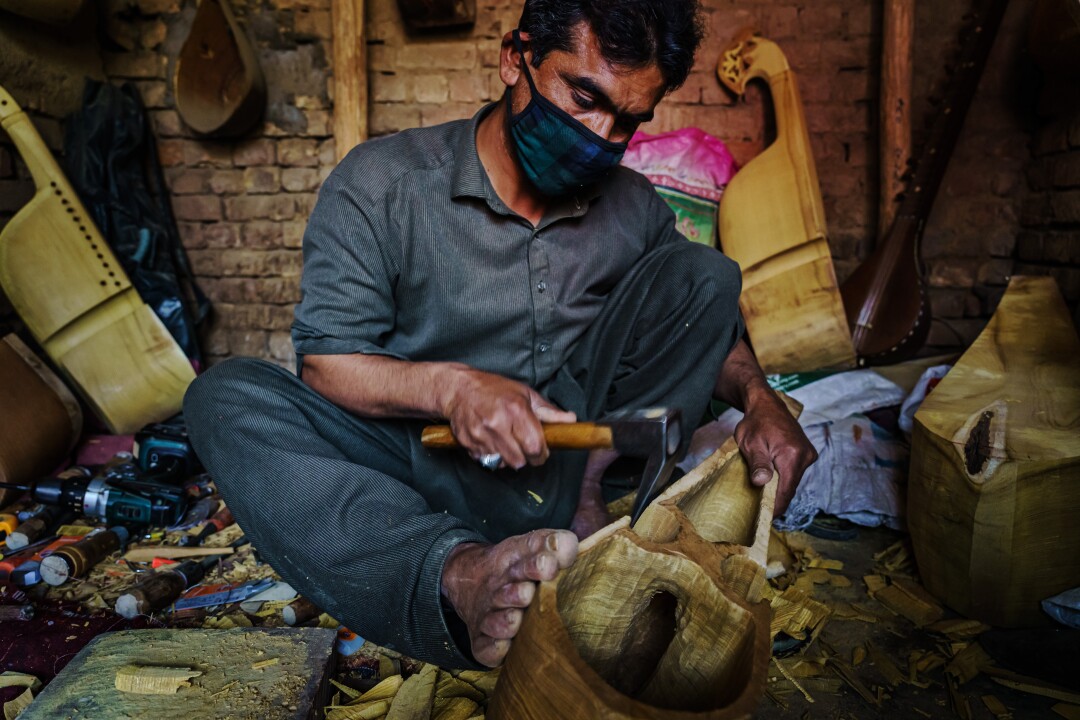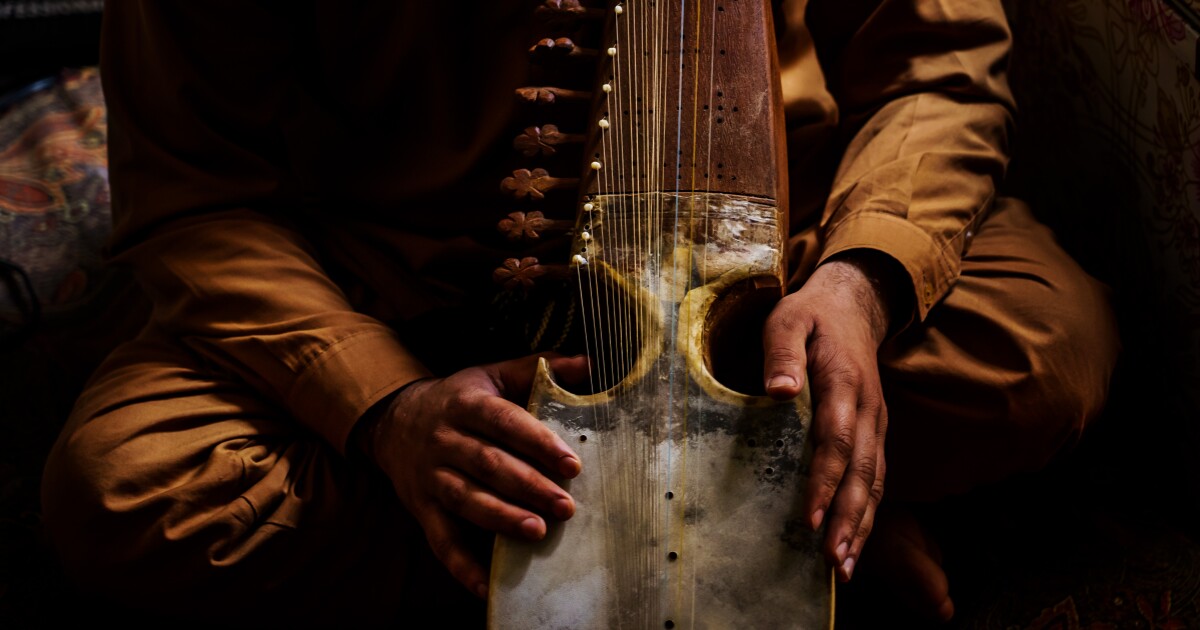Musicians faced death under Taliban rule. They may be silenced once more
The capital’s morning rush hour is a discordant backdrop for the workshop of Izzatullah Neamat. But walk down an alley, sidestep a sewage canal, and there he is: ensconced in the rabble among dozens of rubabs — an ancient instrument that resembles a lute — that have become his life’s work and family legacy.
Here on the outskirts of Kharabat, the city’s oldest quarter and the onetime home of its musicians and artists, the 40-year-old Neamat is a keeper of an Afghan tradition that was all but stamped out in the chaos of war and the harsh rule of religious extremists who — hearing sin instead of song — outlawed music and threatened with death its practitioners.

Izzatullah Neamat works on carving down a block of wood to make a traditional Afghan rubab in his workshop in Kabul on April 29, 2021.
(Marcus Yam / Los Angeles Times)
And it’s set to happen again. U.S. and NATO forces plan to depart the country in as little as a few weeks, leaving behind an Afghan state that few believe can withstand a Taliban onslaught. In recent days, the group has overrun dozens of districts, while its spokesmen discuss controlling and imposing its harsh religious vision on the country with an air of inevitability.
Among the many losers of such a takeover are instrument makers like Neamat, as well as the musicians he serves. For them, there appears to be one solution:
“Faraar,” said Neamat. Escape.
He sat on














/https://specials-images.forbesimg.com/imageserve/611eeb343e5f0412cb682f84/0x0.jpg?cropX1=0&cropX2=1000&cropY1=33&cropY2=595)




/https://specials-images.forbesimg.com/imageserve/604ad3acf728cc29468fec2e/0x0.jpg?cropX1=0&cropX2=846&cropY1=47&cropY2=523)
![See Inside the Amazing Homes of State Music’s Queens [Pics]](https://townsquare.media/site/204/files/2020/08/tim-mcgraw-faith-hill-mansion-california-pictures.jpg?w=1200&h=0&zc=1&s=0&a=t&q=89)











